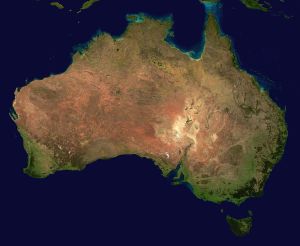Tim Sherratt (Independent scholar)
Exposing the Archives of White Australia
Digital History Seminar, Institute for Historical Research
http://www.history.ac.uk/events/seminars/321 | #dhist
Bedford Room G37, Senate House, Ground floor, 5:15 pm (GMT)
 With the passing of the Immigration Restriction Act in 1901, the new
With the passing of the Immigration Restriction Act in 1901, the new
Australian nation put in place a framework to protect its racial
purity – what was to become known as the White Australia Policy. While
the outlines of this policy are well known, what is less
well-recognised is the White Australia Policy was a massive
bureaucratic exercise.
The Invisible Australians project (invisibleaustralians.org) is using
a variety of digital technologies to explore and analyse the archives
generated by the administration of the White Australia Policy. Many
thousands of people sought to build lives and families within this
discriminatory regime. Invisible Australians aims to recover their
personal stories, while also documenting the workings of the
bureaucracy itself.
How can we re-use archival data to build new forms of access? How can
we track the flow of power through surviving bureaucratic traces? How
can we construct an online research project without any funding or
institutional support? This presentation will introduce Invisible
Australians and reflect on how the digital realm enlarges our scope
both for understanding and for action.
Dr Tim Sherratt (@wragge) is a freelance digital historian, web
developer and cultural data hacker who has been developing online
resources relating to archives, museums and history since 1993. He has
written on weather, progress and the atomic age, and developed
resources including Bright Sparcs, Mapping our Anzacs and QueryPic. He
was a Harold White Fellow at the National Library of Australia in 2012
and is currently an Adjunct Associate Professor in the Digital Design
and Media Arts Research Cluster at the University of Canberra. Tim is
one of the organisers of THATCamp Canberra and a member of the interim
committee of the Australasian Association for the Digital Humanities.
He blogs at discontents.com.au.
The live stream will be available from History SPOT Podcasts page where there is a video pop-out available.
